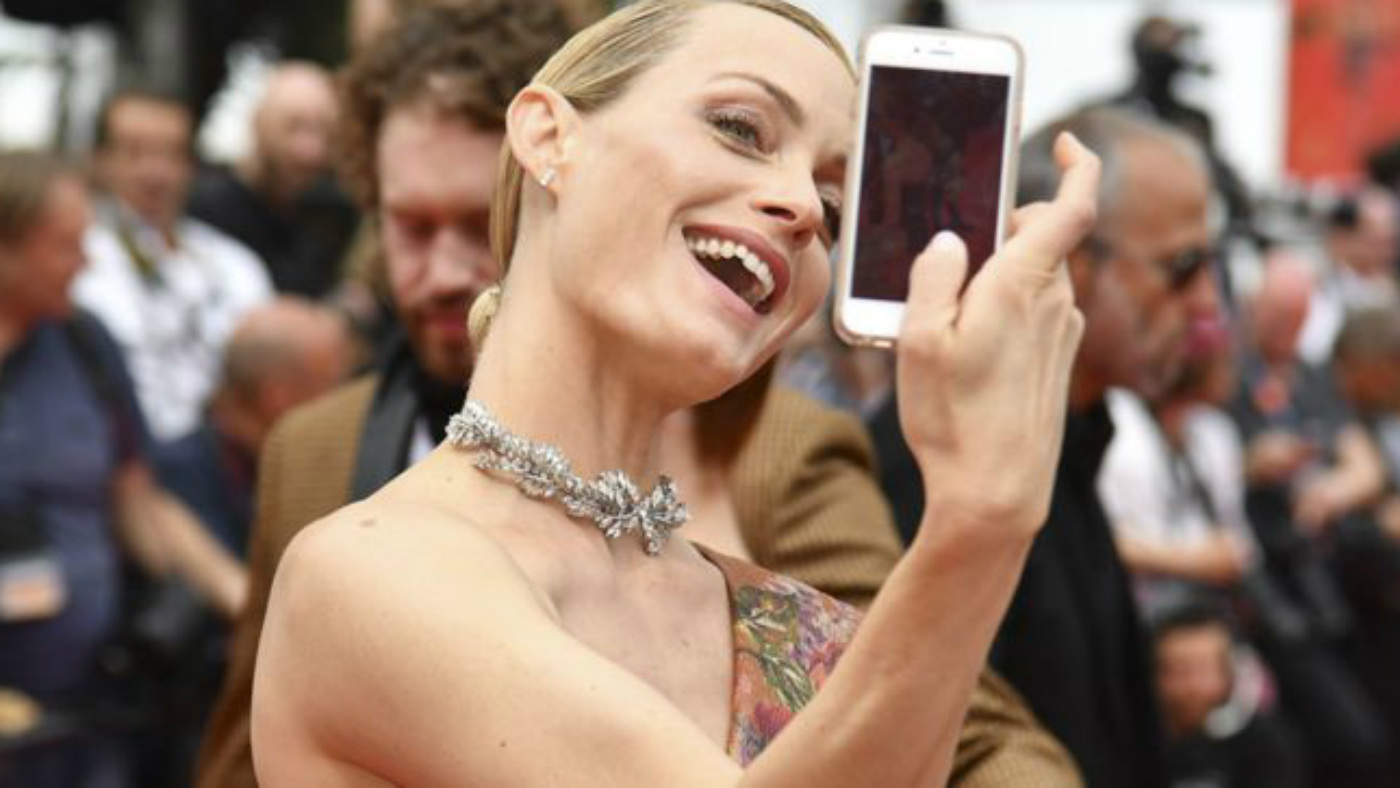Why Cannes is banning selfies
Film festival kicks off with a series of changes aimed at transforming its ethos

A free daily email with the biggest news stories of the day – and the best features from TheWeek.com
You are now subscribed
Your newsletter sign-up was successful
The Cannes Film Festival begins today amid a series of protocol changes including bans on red-carpet selfies and a new schedule intended to stop critics rubbishing movies before they have officially premiered.
This year’s festival kicks off one day earlier than normal, “with a number of new measures set to ensure it won’t be business as usual”, says the BBC.
Festival artistic director Thierry Fremaux took the unusual step of having an impromptu news conference to explain the multiple changes.
The Week
Escape your echo chamber. Get the facts behind the news, plus analysis from multiple perspectives.

Sign up for The Week's Free Newsletters
From our morning news briefing to a weekly Good News Newsletter, get the best of The Week delivered directly to your inbox.
From our morning news briefing to a weekly Good News Newsletter, get the best of The Week delivered directly to your inbox.
The selfie ban is being introduced on the red carpet outside the Palais des Festivals et des Congres venue, he said, because snap-happy stars have been holding up the procession, sometimes by tripping over as they take their photos.
“You don’t come to Cannes to see yourselves, you come to see films... and in a selfie people always look really ugly,” Fremaux said.
“It is also a technical matter. It takes far too long to walk the carpet and they fall, they tumble, because they’re not paying attention.”
A change in the schedule of screenings has also got “journalists grumbling”, says the Toronto Star. In previous years, critics have been allowed to attend morning screenings of films ahead their gala premieres in the evening.
A free daily email with the biggest news stories of the day – and the best features from TheWeek.com
But the festival’s organisers say that because of the rise of “social media” critics, who do not necessarily respect embargoes on publication of reviews, the “film’s creators were increasingly reading bad reviews before they attended the glitzy premieres”, says The Times.
The festival said in a statement that it was “necessary” to rethink the programme, adding: “The underlying logic was based on best practice blown to bits by the massive incursion of digital technologies in our professional and personal lives over the past 15 or so years. Basically, as soon as a film is screened, the social networks turn it into confetti-like strips of rumours.
“As you already know, the principle behind the change we have introduced this year is simple: make the gala session, attended by the team that made the film, the veritable first screening of the film.”
Other changes come in response to more global concerns, such as the #MeToo revelations that have shocked Hollywood and the rest of the world over recent months.
Cannes is following the lead of the Sundance Film Festival earlier this year by setting up a telephone line for reporting any acts of sexual harassment.
Fremaux said the festival was “deeply shocked” to learn of the alleged rapes by film mogul Harvey Weinstein, some of which are said to have occurred during the event itself.
The Cannes boss said that he and the other organisers not only condemned Weinstein’s alleged behaviour, “we (also) questioned ourselves and our own practices”.
Commenting on the absence of many American filmmakers from this year’s festival, Fremaux blamed the “obsession with the Oscars”. Some US directors have reportedly turned down invitations to premiere their films at Cannes because of the long gap between the festival and Oscar nominations.
Another notable absence this year is Netflix, which last year had two films, Okja and The Meyerowitz Stories, competing to win the prestigious Palme d’Or.
This year, Netflix titles “were excluded from competition after the streaming giant refused to guarantee them a release in French cinemas”, says the BBC.
-
 Trump’s fuel blockade puts Cuba in crisis mode
Trump’s fuel blockade puts Cuba in crisis modeIN THE SPOTLIGHT Plummeting tourism, scrambling airlines and rolling blackouts are pushing Cuban society to the brink
-
 ‘The mark’s significance is psychological, if that’
‘The mark’s significance is psychological, if that’Instant Opinion Opinion, comment and editorials of the day
-
 How did ‘wine moms’ become the face of anti-ICE protests?
How did ‘wine moms’ become the face of anti-ICE protests?Today’s Big Question Women lead the resistance to Trump’s deportations
-
 Epstein files topple law CEO, roil UK government
Epstein files topple law CEO, roil UK governmentSpeed Read Peter Mandelson, Britain’s former ambassador to the US, is caught up in the scandal
-
 Iran and US prepare to meet after skirmishes
Iran and US prepare to meet after skirmishesSpeed Read The incident comes amid heightened tensions in the Middle East
-
 Israel retrieves final hostage’s body from Gaza
Israel retrieves final hostage’s body from GazaSpeed Read The 24-year-old police officer was killed during the initial Hamas attack
-
 China’s Xi targets top general in growing purge
China’s Xi targets top general in growing purgeSpeed Read Zhang Youxia is being investigated over ‘grave violations’ of the law
-
 Panama and Canada are negotiating over a crucial copper mine
Panama and Canada are negotiating over a crucial copper mineIn the Spotlight Panama is set to make a final decision on the mine this summer
-
 Why Greenland’s natural resources are nearly impossible to mine
Why Greenland’s natural resources are nearly impossible to mineThe Explainer The country’s natural landscape makes the task extremely difficult
-
 Iran cuts internet as protests escalate
Iran cuts internet as protests escalateSpeed Reada Government buildings across the country have been set on fire
-
 US nabs ‘shadow’ tanker claimed by Russia
US nabs ‘shadow’ tanker claimed by RussiaSpeed Read The ship was one of two vessels seized by the US military